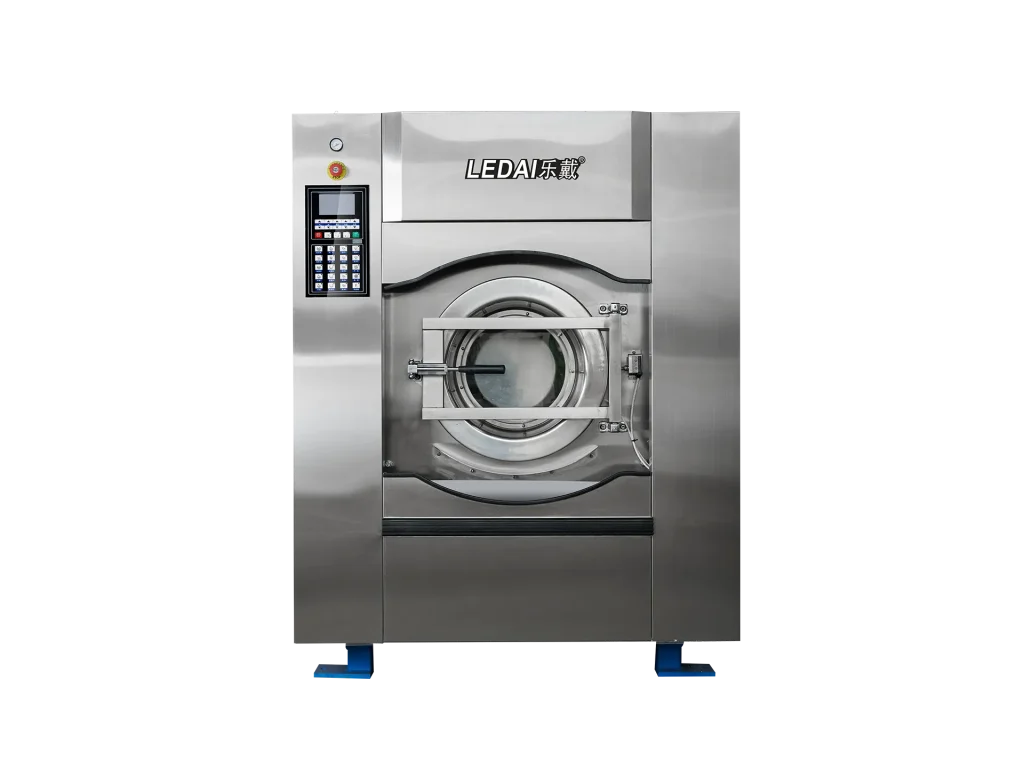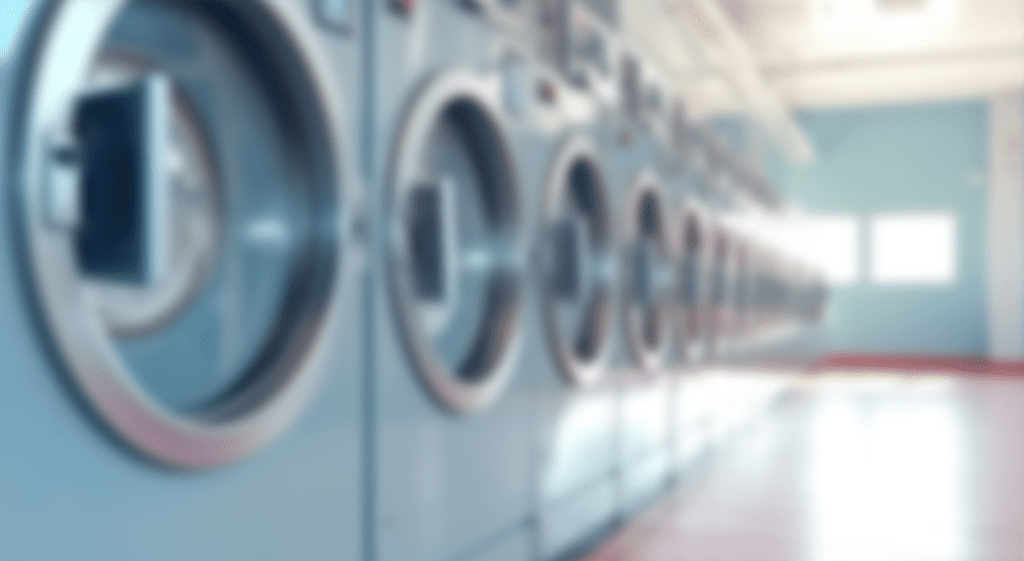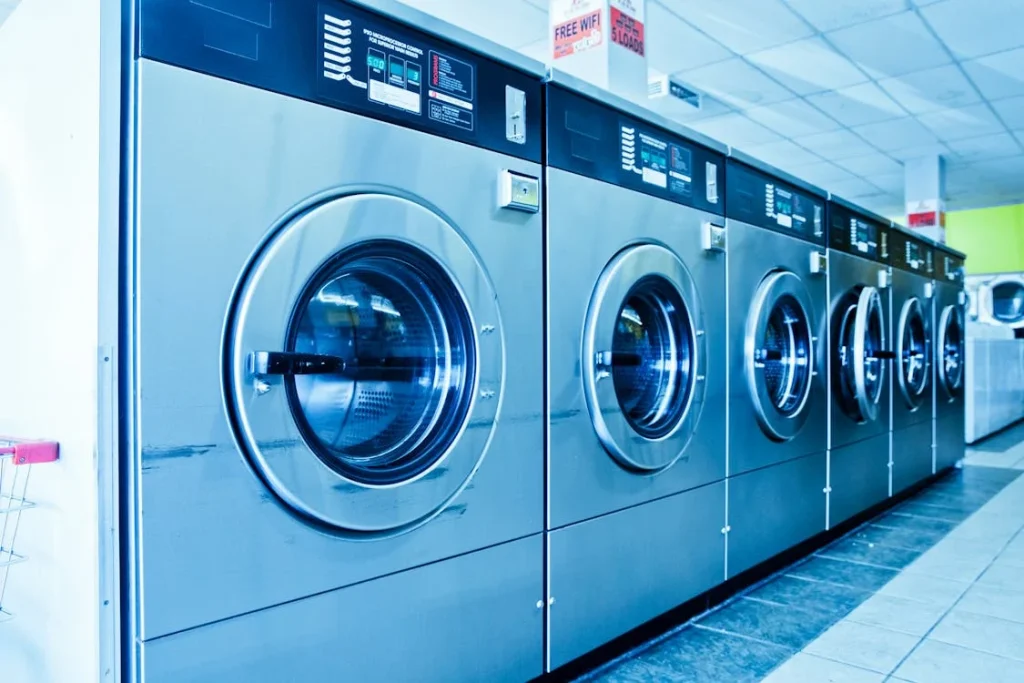When investing in an industrial washer, cost is a primary concern. Prices vary depending on factors like capacity, brand, features, and energy efficiency. Whether you’re running a hotel, hospital, or laundromat, understanding these pricing elements helps in making an informed decision. In this article, we’ll break down industrial washer cost, key factors influencing pricing, and compare top brands to help you choose the right machine for your needs.
Table of Contents
- Factors Influencing Industrial Washer Prices
- Industrial Washer Price Breakdown by Size
- Comparing Industrial Washer Brands
- Where to Buy Industrial Washers?
- Conclusion: Choosing the Right Industrial Washer for Your Budget
- FAQs
Learn more about industrial washing machines here.
Factors Influencing Industrial Washer Prices
Pricing for industrial washers isn’t one-size-fits-all. Several factors impact the overall cost, ranging from machine capacity to technological advancements. Understanding these variables allows businesses to budget effectively and select the best equipment for their operations. Let’s explore the most important cost factors to consider when purchasing an industrial washer.

1. Capacity and Load Size
One of the biggest price determinants is the washer’s capacity. Industrial washers come in various sizes, typically measured in kilograms or pounds. Small-capacity models (30-50 lbs.) cost less than high-capacity washers (100+ lbs.). A larger drum means more laundry per cycle, reducing labor and energy costs in the long run. However, bigger washers require a higher initial investment. Businesses should balance cost with efficiency when selecting the right size.
2. Brand and Manufacturer Reputation
Like any other equipment, industrial washer prices vary by brand. Premium brands often have higher upfront costs but offer durability, reliability, and lower maintenance expenses. Brands like Speed Queen, Electrolux, and Wascomat are known for quality, while lesser-known brands may offer budget-friendly options. Investing in a reputable brand reduces downtime and repair costs, ensuring smooth laundry operations for years.
3. Washer Type: Hard Mount vs. Soft Mount
Industrial washers come in two main types—hard mount and soft mount. Hard-mount washers are bolted to the floor, offering stability and lower costs. Soft-mount washers, on the other hand, have built-in suspension systems, reducing vibrations and installation challenges. Although soft-mount washers are more expensive, they are ideal for upper floors and areas where vibration control is necessary. Choosing the right type affects both upfront investment and long-term operational efficiency.
4. Energy Efficiency and Water Consumption
Energy-efficient washers may cost more initially but lead to substantial savings over time. Machines with advanced water recycling systems, inverter-driven motors, and eco-friendly wash cycles reduce electricity and water bills. Many modern industrial washers meet ENERGY STAR® standards, which can qualify businesses for tax incentives or rebates. Investing in an energy-efficient machine pays off in the long run by reducing operational expenses.
5. Advanced Features and Technology
Industrial washers today offer smart technology, automated detergent dispensers, and touchscreen controls. These features streamline operations, improve efficiency, and enhance wash quality. However, the more advanced the features, the higher the cost. While basic models are budget-friendly, high-tech machines with IoT connectivity and remote monitoring can optimize business performance. Deciding which features are essential versus optional helps manage costs effectively.
6. Installation and Maintenance Costs
Beyond the machine price, installation costs can add up. Hard-mount washers require concrete anchoring, while soft-mount models need specialized suspension. Professional installation ensures safety and longevity but increases upfront expenses. Additionally, routine maintenance, such as pump cleaning, bearing replacements, and software updates, should be factored into long-term costs. Investing in a machine with low maintenance needs can save money over time.
Industrial Washer Price Breakdown by Size
Understanding price ranges based on machine size helps businesses budget accordingly. Here’s a general breakdown of industrial washer prices based on capacity:
Small Industrial Washers (30-50 lbs.) – $5,000 to $10,000
Ideal for smaller businesses, boutique hotels, or healthcare facilities, these machines handle moderate loads efficiently. They are cost-effective but may require multiple units for high-demand environments.
Medium Industrial Washers (60-100 lbs.) – $10,000 to $20,000
These washers offer a balance between affordability and high performance. Suitable for mid-sized laundromats, hotels, and gyms, they provide efficient washing capabilities without the hefty price tag of larger models.
Large Industrial Washers (100+ lbs.) – $20,000 to $50,000+
Designed for high-volume businesses like hospitals, resorts, and commercial laundries, these machines handle massive loads efficiently. They come with advanced features but require significant investment upfront.
Comparing Industrial Washer Brands
Brand reputation plays a vital role in price and reliability. Let’s compare top industrial washer brands and what they offer.
1. Speed Queen
Renowned for durability and reliability, Speed Queen washers range from $8,000 to $30,000, depending on capacity. These machines are ideal for laundromats and large-scale laundry operations.
2. Electrolux
Electrolux industrial washers, priced between $10,000 and $35,000, offer energy efficiency and advanced features like smart dosing. They are excellent for businesses looking to optimize operational costs.
3. Wascomat
A premium brand known for longevity, Wascomat washers start at around $12,000 and can go up to $40,000. They are ideal for hotels, hospitals, and large-scale laundry businesses.
4. Milnor
Milnor washers range from $15,000 to $50,000, offering high-capacity and energy-efficient models. They are well-suited for industrial-scale laundry facilities.
Where to Buy Industrial Washers?
When purchasing an industrial washer, it’s best to buy from reputable suppliers and distributors. Online marketplaces, direct manufacturers, and specialized laundry equipment dealers offer various pricing options and financing plans. Always compare prices and warranties before making a decision.
Browse premium industrial washers here.
Conclusion: Choosing the Right Industrial Washer for Your Budget
Investing in an industrial washer requires careful planning. By considering capacity, brand, features, and energy efficiency, businesses can find the right machine that balances cost and performance. Whether you need a budget-friendly option or a high-tech washer, understanding pricing structures ensures a smarter purchase.
Contact us today for expert guidance and tailored solutions for your laundry business!
FAQs
1. What is the average lifespan of an industrial washer?
Industrial washers typically last 10-15 years, depending on maintenance and usage frequency.
2. Can I finance an industrial washer purchase?
Yes, many suppliers offer leasing and financing options to help businesses afford industrial washers.
3. Are energy-efficient washers worth the extra cost?
Absolutely! They reduce water and electricity consumption, leading to significant long-term savings.
4. How often should industrial washers be serviced?
Routine maintenance should be performed every 6-12 months to ensure optimal performance.
5. What is the difference between industrial and commercial washers?
Industrial washers are designed for high-volume operations, while commercial washers cater to smaller-scale businesses.
Here are some other articles that we think might interest you:
Optimizing Water Usage Consumption & Reducing Costs in Industrial Washers


